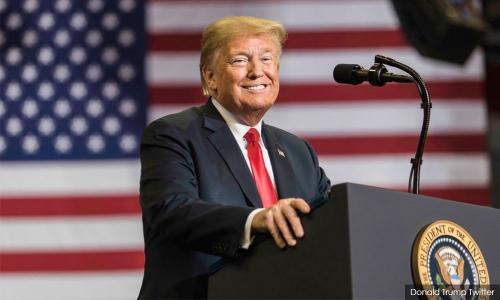Why is the US harping on Muslim minority issues in other countries?
When Trump proposed the “Muslim ban”, my Muslim friends in America told me that they have been subjected to vary degrees of siege, curses and racism, many of which were from the relevant agencies of the US government. The Muslim public has also long suffered from hatred and attacks from some Americans.
American politicians blame hatred of Muslims on the malicious exaggeration of the media and the discrimination and prejudice in Hollywood movies, ignoring the essence of the problem -- the “Muslim issue” has repeatedly become a tool for politicians to achieve their goals, and even a “weapon” for the US government to realize its own interests.
On November 21, 2018, the Senate and the House of Representatives of the US called on the Trump administration to take compulsory measures against Chinese officials to oppose China’s suppression Xinjiang Uighurs with the so-called "re-education" facilities. On December 21, the House Foreign Affairs Committee of the US proposed a bipartisan resolution -- the Uighur Intervention and Global Humanitarian Unified Response Act.
In addition, the media also frequently lends its voice to this campaign. Voice of America, Washington Post, Le Monde, Reuters, Financial Times and Radio Free Asia intensively published a large number of articles about the Xinjiang Training Center.
They accused the Chinese government of violating human rights in similar terms. In the end, the so-called "re-education" facilities have become a key word for western attention to Xinjiang. And it is exactly the key stage for the US to impose extreme pressure on the trade negotiation with China.
In November, the head of the Congressional-Executive Commission on China (CECC) of the US questioned “why Turkey, Saudi Arabia, Egypt, Indonesia, Malaysia, Pakistan and other countries have kept quiet about the ‘Re-education Camp’ in Xinjiang? The United States must promote the voices and actions of these countries.”
On December 21, nearly a thousand people in Jakarta held a protesting demonstration outside the Chinese Embassy in Indonesia, demanding that the Beijing authorities must immediately end the mass detention of Muslims in the so-called “Training Center”. In the capital of the world’s largest Muslim country, the Chinese Embassy has fallen into the center of the storm.
Nile Warisman, who was speaking at the scene, was an important campaign member for Prabowo, an Indonesian presidential candidate. He used the Xinjiang issue to attack the Jokowi administration and to provoke public dissatisfaction with it. Are the opposition parties in Indonesia and the US reaching a certain tacit understanding about their attention to the “Muslim issue”?
In fact, the American shadow can always be seen in the Muslim issue. On November 16, the Ittipak Uigur Society of the Kyrgyz Republic submitted a petition with signatures of Kyrgyz Uighurs to the US Embassy in Kyrgyzstan. Since December, many rallies took place nearby the United Nations and the Chinese diplomatic missions in Kyrgyzstan, and the US and European ambassadors to Kyrgyzstan frequently pressured the Kyrgyz government to criticize China’s actions in Xinjiang.
Why does the Trump administration, which issued “Muslim bans” maintain silence about their own problem, but pay special attention to a Chinese Muslim issue in the midst of the US-China trade war instead? Its ultimate motive is obvious.
Nevertheless, the Muslim issue should not become a weapon for the US to curb China or to achieve its political goals. Without the provocation of the US, many conflicts and disputes in the world would not have occurred.
Meanwhile, it is also worth pondering whether the cooperation between the Umno and PAS will follow the pace of the US on the Muslim issue, if it will force the Pakatan Harapan and Prime Minister Mahathir Mohamad to feel the pressure, or whether it will affect the direction of the Malaysia-China relations.
The views expressed here are those of the author/contributor and do not necessarily represent the views of Malaysiakini.
RM12.50 / month
- Unlimited access to award-winning journalism
- Comment and share your opinions on all our articles
- Gift interesting stories to your friends
- Tax deductable
